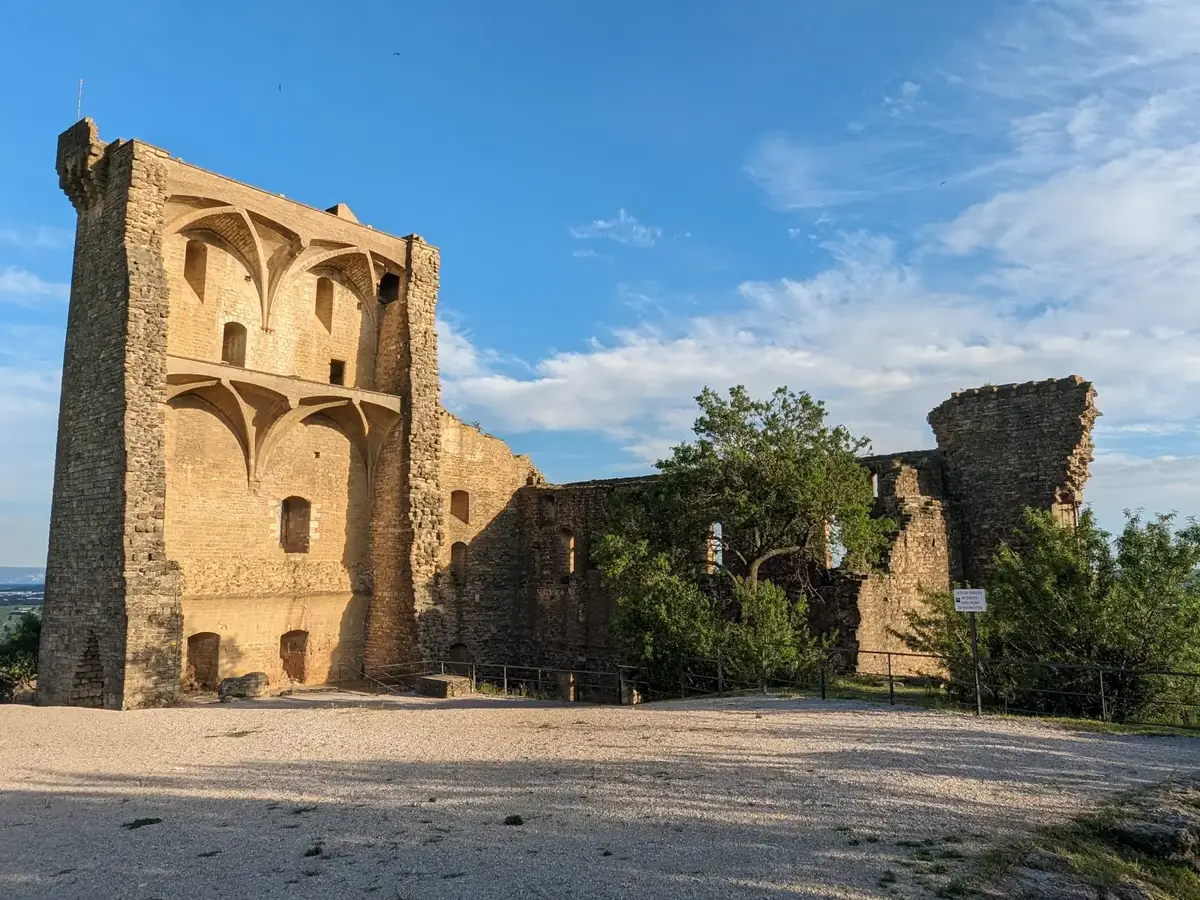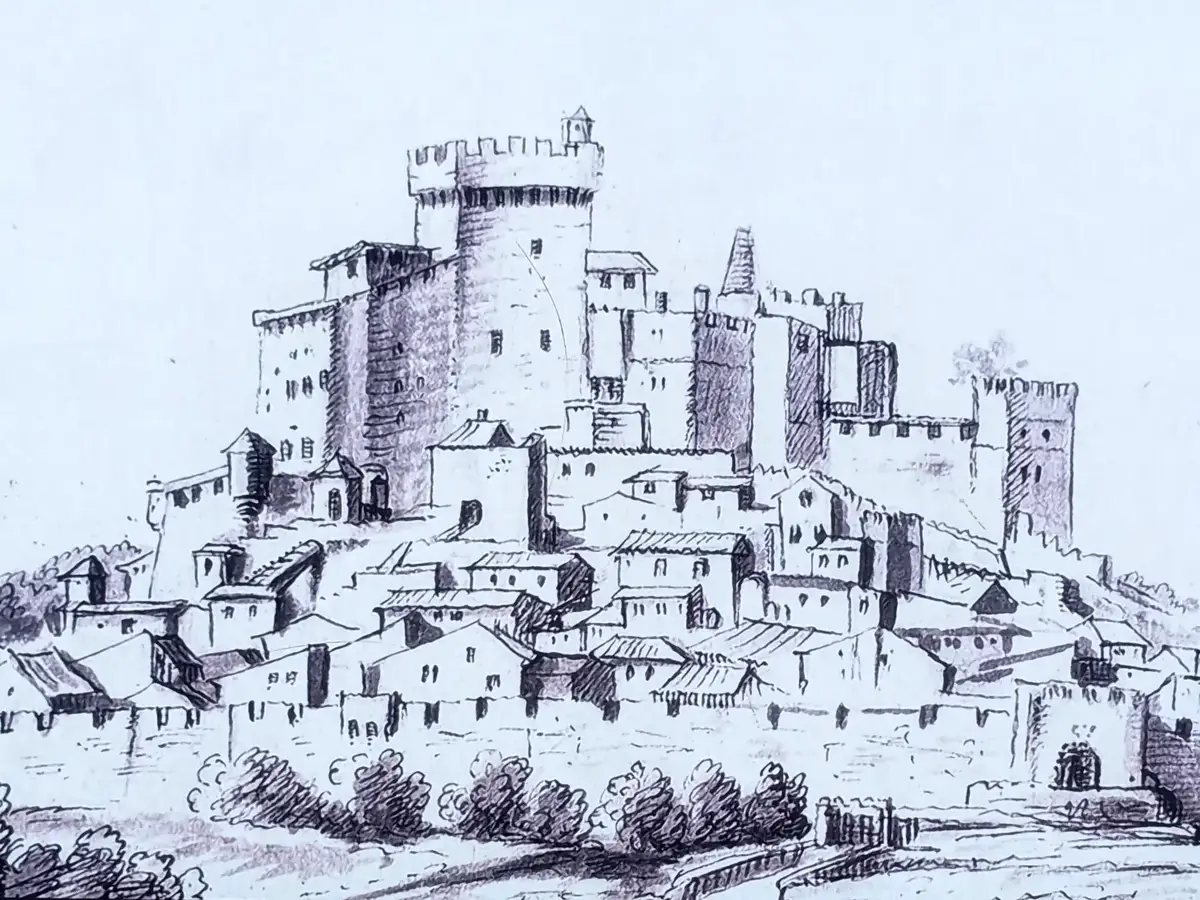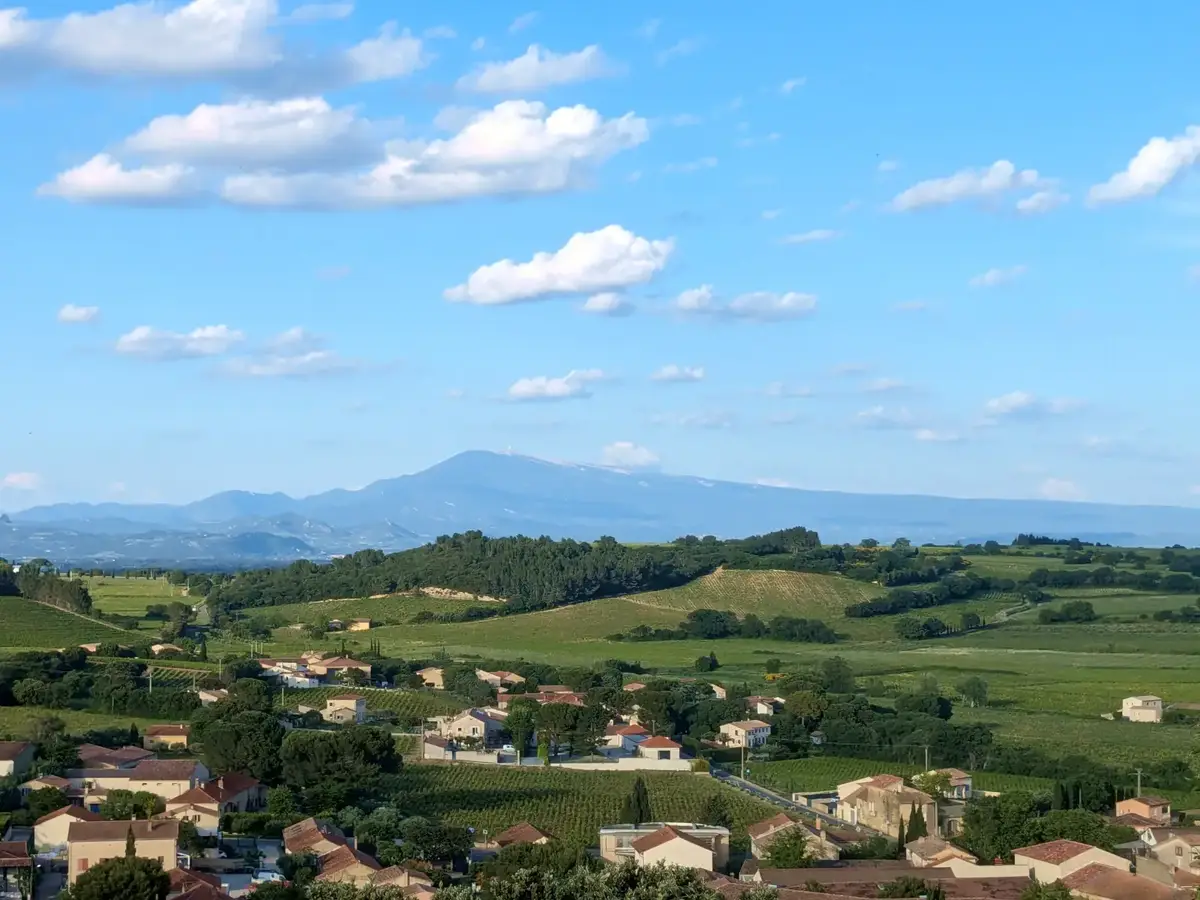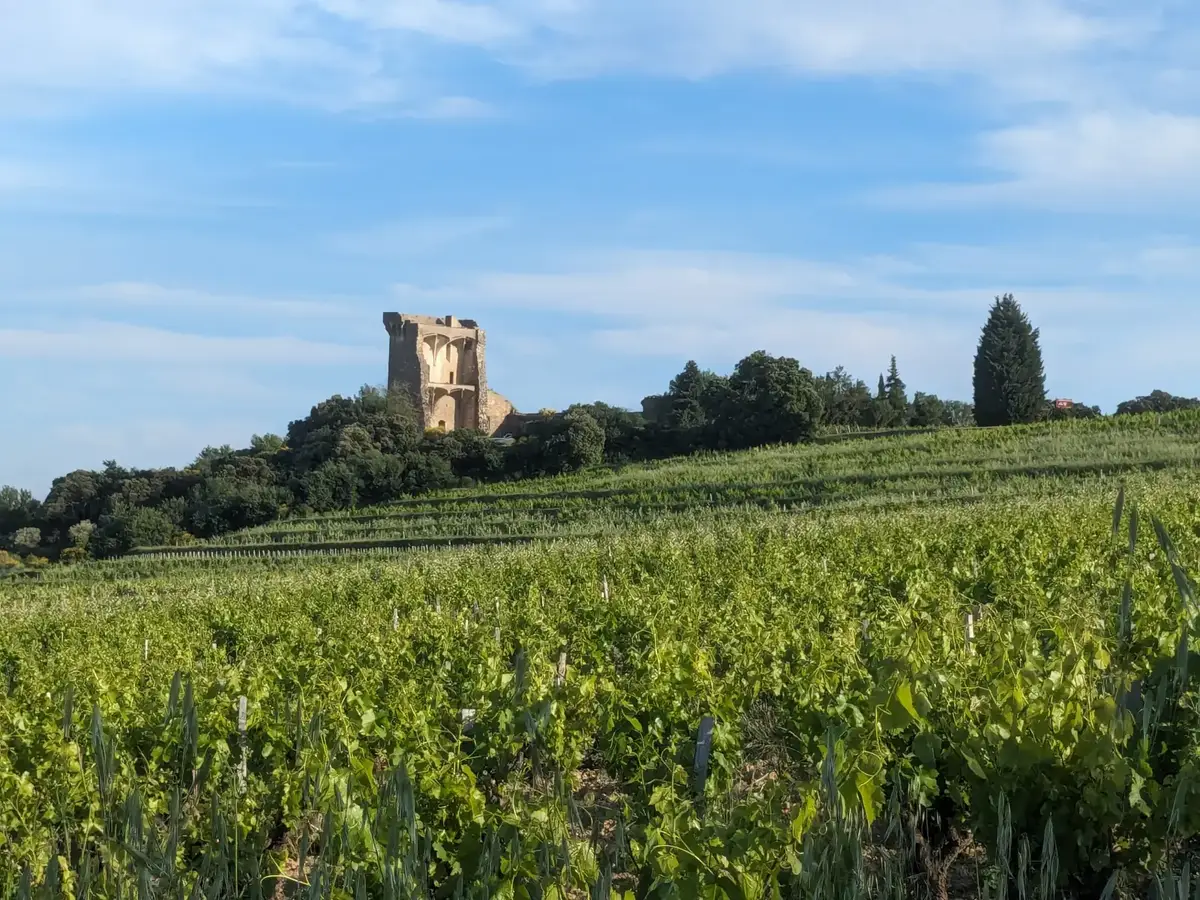Indeed, there is a castle in Châteauneuf-du-Pape, though it has long left its youthful splendor behind!
In truth, only sections of a keep and a façade remain of the original magnificent château. Yet they are evocative enough to justify a leisurely stroll through the cobbled streets, culminating at the village’s summit to behold the remnants firsthand.

In the 13th century, Châteauneuf-Calcenier (the village’s original name until the 19th century) belonged to the Bishop of Avignon, and therefore to the Pope when Clement V settled in the Provençal city in 1305. By 1316, his successor John XXII decided to rebuild and fortify the château of Châteauneuf-Calcenier. A true fortress rose, yet also a pleasant residence which pleased Clement VII.

The Wars of Religion dealt a harsh blow to the fortress. The village, abandoned by its inhabitants, was seized and burned by Huguenots in March 1563. The château was heavily damaged. Restored by the archbishops of Avignon, it was sold during the Revolution, then dismantled for its stones before being protected as a Historic Monument by the state in 1892. During the Second World War, it served as an observation post and armory for the German army, which blew up the northern façade and two sections of the keep upon retreat in August 1944.

From the top of its towers, the Pope could gaze over all his possessions in the Rhône Valley, the Comtat Venaissin, and Avignon. He also enjoyed the wines produced on the château’s neighboring vineyard, where the vines still flourish today.
Find a Guesthouse near Châteauneuf-du-Pape
Today, you too can stand atop Châteauneuf-du-Pape, at the foot of the old château, and as you admire the landscape, feel like a Pope of Avignon on holiday.



